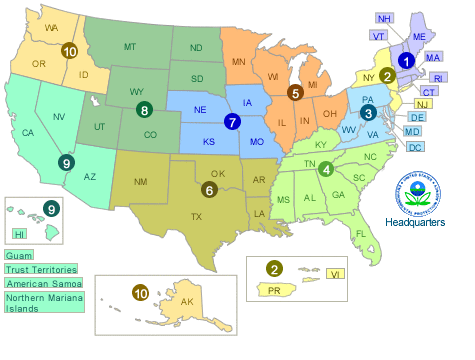By Printus LeBlanc
Washington D.C., the hub of the federal government, is notorious for extravagant spending and overpriced salaries. For this reason, President Trump ran on a campaign of “draining the swamp”, the swamp being Washington D.C. seemingly endless federal bureaucracy. Unfortunately, the swamp is much bigger than just D.C. A recent report from the Environmental Protection Agency’s (EPA) Inspector General highlights the need for a nationwide swamp draining.
According to the EPA website, the mission of EPA is to protect human health and the environment. For the mission, the EPA has deployed employees and offices across the nation. The EPA has divided the nation into ten regions, each with its own regional director. Region 10 is known as the Seattle region, and serves Alaska, Idaho, Oregon, Washington, and the 271 Native tribes therein. A recent inspector general’s report highlighted several disturbing pay related matters in the region.
Government employees are paid on a bi-weekly basis. The rate of pay depends on their General Service (GS) level. The levels go from GS-1 through GS-15, then on to Senior Executive Service (SES) levels. With each pay rate, there is a pay cap. However, the pay cap may be waived for GS employees while conducting work designated as emergency or mission-critical.
The EPA has given the authority to declare disasters or emergencies to management officials in the regions. If an emergency is located in one spot and not spread across two regions, the Regional Administrator will if the event is worthy of lifting the cap. The Regional Administrator may redelegate the authority to declare an emergency to the Assistant Regional Administrator or Deputy Regional Administrator. After the waiver is requested, it then goes to Human Resources Officer (HRO).
The OIG report showed 79 instances of employees exceeding the pay cap in FY15, FY16, and up to January 7, 2017. However, only one of the instances had a waiver request from the regional administrator or another designee, and the approval of the HRO.
There is also one more problem, what is the emergency? What is the emergency that has been going on for two years that no one has heard about? Have these federal employees been bilking taxpayers for two years? Clearly the system broke down, and taxpayers literally paid the price.
Clearly over payments were made, and several people within the chain of command failed to correct the mistake. Congress should immediately investigate the over payments. The funds do not belong to the federal employees, it belongs to the taxpayer’s and should be treated as such.
Firing a government employee is extremely difficult, but Congress does have two options. The first is impeachment. Congress could impeach the Human Resources Officer or the acting Region 10 Administrator for improper disbursement of funds. This would be a long drawn out process, and highly unlikely. The second option is the best.
This is a chance for Congress to implement the Holman rule. The rule allows Congress to reduce the pay of a specific federal employee, fire specific federal employee, and cut a specific program. This can happen because the rule allows amendments to appropriations legislation. It was reinstated earlier this year after being rescinded in 1983.
Americans for Limited Government President Rick Manning stated, “This is a perfect opportunity for the Congress to use the Holman rule to defund the salaries of whichever human resources officers failed to follow the rules in administering additional pay. Additionally, then-Deputy Regional Administrator of EPA region 10 Michelle Pirzadeh, now acting administrator, should be replaced and have her salary defunded if she was aware of the overpaying scheme and failed to take action. Federal rules governing pay to federal employees were not followed, resulting in the overpaying of EPA employees in region 10, and those responsible are not entitled to keep their jobs.”
Using the Holman rule would send a clear message to government employees bilking the system. Congress has often complained about improper disbursement of funds in committee hearings, and now they have a chance to act. If Congress truly wants to restore the first branch of government to its’ rightful place in
Printus LeBlanc is a contributing reporter for Americans for Limited Government







